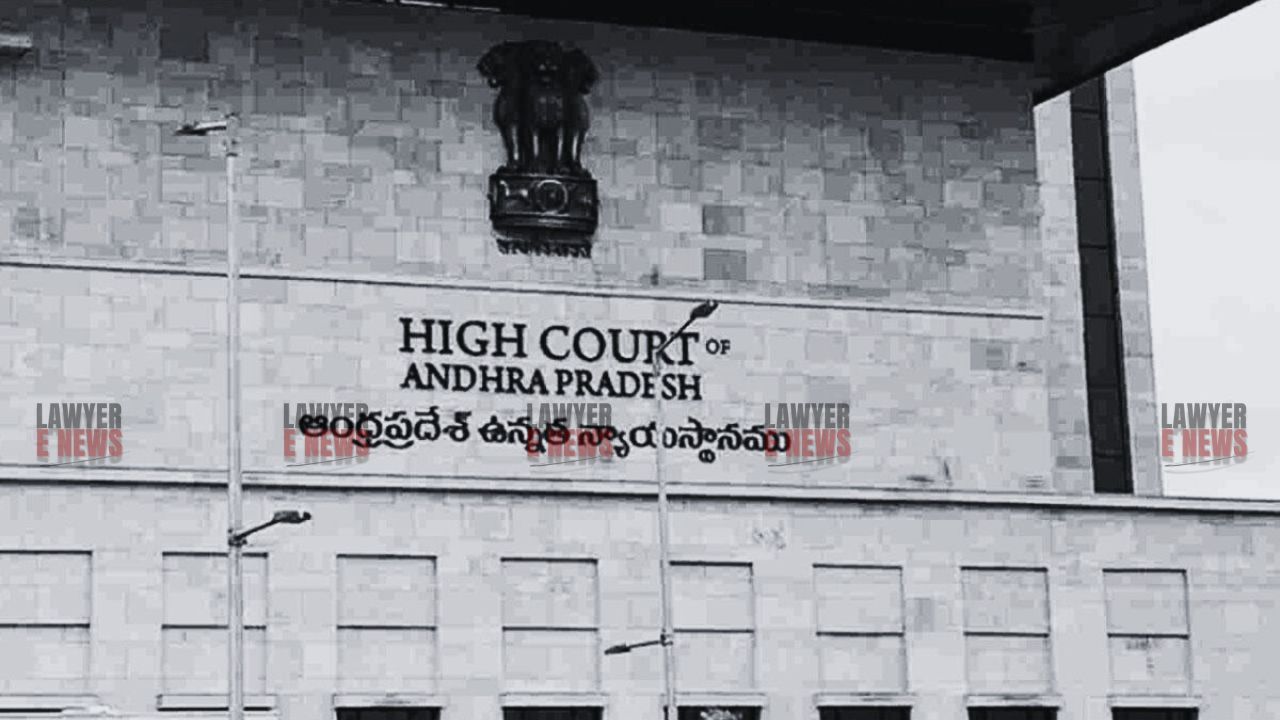-
by Admin
15 February 2026 5:35 AM



The Andhra Pradesh High Court has dismissed an appeal filed against a trial court’s decision that upheld a partition suit involving disputed wills. The court ruled in favor of the plaintiffs, validating the earlier will and rejecting the later one, which the appellants claimed as genuine. The judgment, delivered by Justice V. Gopala Krishna Rao, reaffirmed the trial court’s decree for partition and mesne profits.
The case centered around the inheritance of properties owned by the late Bangaru Viswanadham, who had executed two wills—one in 1994 and another allegedly in April 1994. The plaintiffs, who are the daughters of Viswanadham, contended that the first will (dated March 17, 1994) was valid and sought partition of the properties accordingly. The defendants, including Viswanadham’s son, wife, and grandson, claimed that the second will (dated April 25, 1994) was the valid one, which left the entire estate to the son’s family, excluding the daughters.
The court scrutinized both wills, with the primary contention being the legitimacy of the latter will dated April 25, 1994. The defendants argued that this will was executed by Viswanadham in a sound state of mind and revoked the earlier will. The plaintiffs, however, maintained that the second will was forged, alleging that it was not executed by their father.
Justice V. Gopala Krishna Rao emphasized that the burden of proving the authenticity of the second will (Exhibit B1) lay with the defendants. The court noted several suspicious circumstances surrounding the second will, including the exclusion of Viswanadham’s wife from any provisions for her maintenance despite her surviving him by five years, and the fact that the will was not registered despite the presence of a sub-registrar office in close proximity.
The court was also swayed by the forensic evidence presented, whichh suggested discrepancies in the signatures on the disputed will. The testimony of expert witnesses, coupled with the failure of the defendants to dispel doubts about the will’s authenticity, led the court to conclude that the second will was not genuine.
The appellants had filed multiple interlocutory applications under Section 151 of the Civil Procedure Code, seeking to introduce additional evidence at the appellate stage. The court rejected these applications, noting that the appellants had ample opportunity to present such evidence during the trial. The court emphasized that the provisions of Order XLI Rule 27 of the CPC clearly outline the conditions under which additional evidence can be admitted at the appellate stage, none of which were met in this case.
The court gave significant weight to the first will (Exhibit A1), which was registered and executed in the presence of credible witnesses. The court held that this will was validly executed, free from any suspicion, and was in conformity with legal requirements.
In its final judgment, the Andhra Pradesh High Court dismissed the appeal and upheld the trial court’s decree, confirming the partition of the properties as per the first will dated March 17, 1994. The judgment reinforces the importance of proving the authenticity of a will with clear, credible evidence, particularly when allegations of forgery are involved. The decision is expected to impact future disputes over wills, especially in cases involving conflicting claims of fraud and undue influence.
Date of Decision: September 2, 2024
Bangaru Venkata Ramana Seshavatara (Died) & Ors. Vs. Grandhi Bangaram & Ors.
